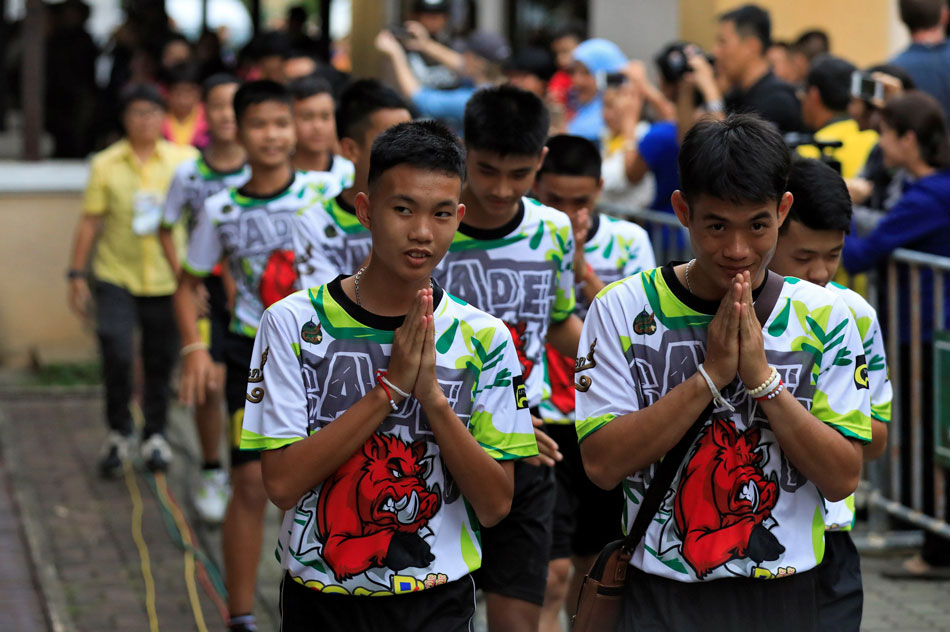As I reflect on the outpouring of ingenuity, resilience, and collective hope involved in the Thailand cave rescue miracle, I am interested in how there were certain things that the boys and their coach did not have access to. For example, they had little to no perceptible light; they were without cooked and fast food; they had no iPhones, the Internet, television, and newspapers; they had no warm beds, clean sheets, air conditioning, showers, plumbing, and toilets; and they had no video games, movies, and toys.
It was the Buddha who taught: “To live a pure unselfish life, one must count nothing as one’s own in the midst of abundance.”
Here is what they did have: They had mineral water; they had each other; they had hope and faith; they had the attention and prayers of the world; they had friends and family members reaching out to them; they had experts working around the clock; they had science and technology; they had an innate human capacity to adapt, cope, and go inward to find untapped resources of determination and strength; and they had religion.
Regarding this last possession, the Judeo-Christian West should be careful not to misinterpret the meaning of their experience. Most likely the boys, their coach, and the people helping in the rescue effort, did not have Christianity as their primary influence. Practically speaking, those involved firsthand were most likely comforted and inspired by Buddhism; after-all, Thailand is 93.6% Buddhist (and almost entirely Theravada Buddhist).
What kept the boys and their coach alive were the conceptual skills and physical adaptations passed down over centuries by the Buddha and his apostles. More than hope in Jesus and prayers to the Holy Father, the boys possessed a commitment to mindfulness-meditation, the virtues of gentleness, kindness and patience, and a radical compassion for all beings: even the cave dwellers that slither, sting, and suck in the middle of the night. In the end, it was their faith in the power of the mind and their intractable Buddhist faith that saved them.
“No one saves us but ourselves. No one can and no one may. We ourselves must walk the path.” Buddha
George Cassidy Payne is a SUNY adjunct professor of philosophy and domestic violence counselor. He lives and works in Rochester, NY. George has theology degrees from Colgate Rochester Crozer Divinity School and the Candler School of Theology and Emory University.

